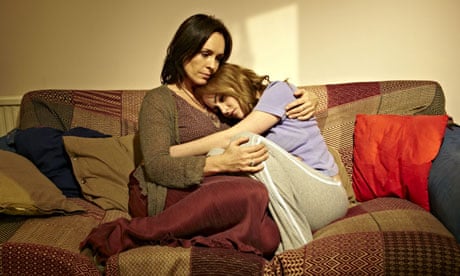The BBC's three-part stripped dramatisation of the 2006 Ipswich serial killings has proved to be brilliant television – uncomfortable, emotional and at times frustrating viewing; its impact increased by the inevitability of its storyline: there was to be no sudden breakthrough that would save the murdered girls.
This haunting fact – that the women whose stories were now being told, for all the wrong reasons, would not be saved by a sudden police intervention – lay right at the heart of Five Daughters. This was not your usual police procedural, but the antithesis to it: a story about a serial killer where the drama came courtesy of the victims and their families, instead of the police and their investigation. There's an interesting contrast to be made between Five Days, the recent BBC drama broadcast in a strip of hour-long episodes that focused on police, and Five Daughters, where the detectives plodded and obeyed procedure and got lucky with some DNA.
Similarly, writer Stephen Butchard managed to tell a compelling tale of drugs without recourse to the usual shorthand. The dealers rarely stepped out of the background; there was nothing of gangs and gangsters. Instead the message was simple – addiction is irrational, all-consuming, and cares not about your background or how well you were brought up. It makes you do things that those who haven't experienced withdrawal cannot comprehend: it matters more than your life. Butchard quietly defeated the arguments about prostitutes enjoying their trade and choosing a lifestyle without once mentioning them.
But the real triumph of Butchard's drama was the women themselves. Beautifully written – from the mum who welcomed her daughter home from prison with unconditional love, to the young woman who admits to giving her own sister a wrong number in order to protect her family from the effects of her addiction, to the girls bathing together by candlelight before hitting the streets. This was the really heart-breaking stuff, with some amazing performances: Ruth Negga as Rochelle and Jaime Winston as Anneli both fragile and hard at the same time; Sarah Lancashire as Rosemary Nicholls giving, for me, the performance of her career. There was not a weak link among this cast.
Arguably, last night's episode didn't always walk the line between storytelling and campaigning successfully, with the drug centre counsellors becoming the writers' voice perhaps a little too obviously. But that is but a niggle. Five Daughters was a masterclass in how to dramatise a recent news event.

Comments (…)
Sign in or create your Guardian account to join the discussion